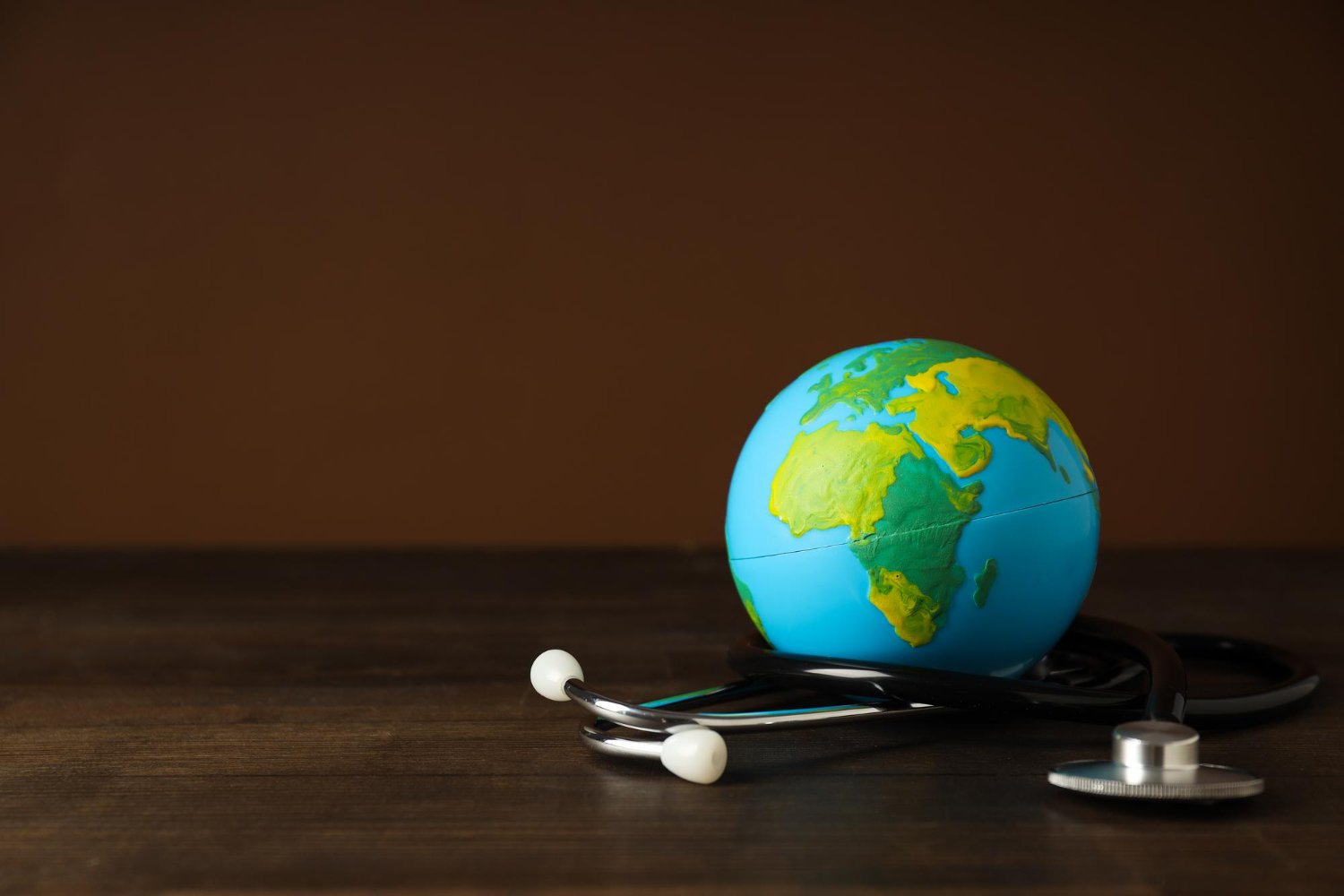
Introduction to Global Health Ethics
Global health ethics is a vital field that shapes the moral principles guiding health policies and practices worldwide. This discipline addresses a range of issues, including health equity, access to care, and the responsibilities of nations and organizations in promoting health for all. The World Health Organization (WHO) plays a pivotal role in developing these ethical standards, focusing on the diverse health needs of populations across the globe.
At the core of global health ethics is the concept of resource equity. This principle emphasizes the necessity for fair access to healthcare services, ensuring that individuals receive the care they need, regardless of their socio-economic status or geographical location. The WHO’s commitment to addressing health disparities through comprehensive strategies highlights the importance of equitable resource distribution in improving health outcomes globally.
In this context, the words of Isaiah 58:10 resonate deeply: “If thou draw out thy soul to the hungry, and satisfy the afflicted soul; then shall thy light rise in obscurity.” This verse calls for selflessness and love for others, particularly those who are marginalized and in need. It serves as a thematic anchor for our exploration of health equity, as it underscores the moral imperative to address suffering and uplift those who are oppressed.
By aligning our efforts with these ethical principles, we can inspire change and work towards a future where health resources are equitably distributed, fostering a healthier world for all.
The Call for Equity in Health Policy
In his influential 2003 article, Paul Farmer shed light on the critical need for equity in health policy. Farmer, a prominent global health advocate and founder of Partners In Health, argued that healthcare should not be a privilege for the wealthy but a fundamental right for all. His concept of ‘accompaniment’ emphasizes the moral obligation of healthcare workers to stand alongside their patients, particularly those facing dire circumstances, such as HIV/AIDS and Ebola.
Farmer’s perspective challenges the prevailing notion of scarcity in healthcare resources. He firmly believed that the poorest should not be denied adequate care simply due to limited resources. Instead, he demonstrated that necessary resources could be mobilized to provide equitable care. This approach is crucial in shaping health policies that prioritize justice and address the needs of marginalized communities.
The necessity of equity in health policy extends beyond mere access to care. Health equity is closely linked to equal opportunity, as disparities in health outcomes often stem from social determinants such as economic status, education, and environment. Policies must tackle these inequalities to create conditions where everyone has the chance to attain their full health potential.
Furthermore, addressing health disparities—preventable and unjust differences in health outcomes—is essential. By focusing on community-led solutions and leveraging local resources, policymakers can promote health equity. In essence, equitable health policies not only improve individual well-being but also strengthen communities, paving the way for a healthier future for all.
Justice in Resource Allocation
In his 2002 article, Benatar emphasizes the vital role of justice in the distribution of health resources. He argues that a just healthcare system must be built on ethical considerations that prioritize the needs of the most vulnerable populations. This perspective aligns with the broader understanding of justice as a guiding principle, particularly in the context of global health.
Benatar’s views highlight the importance of ethical analysis in healthcare decision-making. He suggests that moral judgments should shape how resources are allocated, ensuring that all individuals, regardless of their socioeconomic status, have equitable access to health services. This is crucial, especially as the COVID-19 pandemic has underscored existing disparities in healthcare access.
The pandemic revealed that over 3 billion people still lack access to vaccines, with wealthier nations often hoarding resources. Such actions illustrate the deep-rooted social injustices that affect health outcomes worldwide. Benatar’s emphasis on social justice calls for a reevaluation of how health resources are distributed, advocating for systems that prioritize fairness and equity.
Furthermore, addressing the social determinants of health, such as housing and access to sanitation, is essential for ensuring that all individuals can achieve good health. Justice, in this context, is more than just fair distribution; it encompasses the recognition that health is a fundamental right that should be accessible to everyone.
In conclusion, Benatar’s insights into justice remind us that equitable resource allocation is not merely a policy issue but a moral imperative. As we strive for global health equity, embracing justice as a foundational principle will be crucial in inspiring meaningful change.
Ethical Obligations to Prevent Suffering
In his influential book, The Life You Can Save (2009), philosopher Peter Singer presents a compelling argument for the moral duty we have to alleviate suffering. He asserts that our ethical responsibilities extend beyond mere charity; they require us to actively work towards reducing suffering in the world.
At the heart of Singer’s perspective is the notion that if we have the power to prevent something bad from happening, without sacrificing anything of comparable moral importance, we are obligated to do so. This ethical imperative is particularly relevant in the context of global health, where millions suffer due to lack of access to essential resources. The COVID-19 pandemic has starkly illustrated these inequalities, with many vulnerable populations remaining without crucial health care and vaccinations.
Singer emphasizes that our moral obligations should not be limited by geography or nationality. Instead, we must recognize our interconnectedness and the shared responsibility we hold for the well-being of others. This aligns with the principles of social justice, which advocate for equitable access to health resources.
Ultimately, Singer’s call to action urges us to rethink our priorities. It challenges individuals and governments to allocate resources more justly and to create systems that prioritize health for all. By embracing these ethical obligations, we can inspire real change, ensuring that the suffering of our fellow humans is addressed with urgency and compassion.
General Will and the Common Good
Jean-Jacques Rousseau, a prominent philosopher of the Enlightenment, introduced the concept of the general will. This idea emphasizes the collective will of the people, which should guide governance and societal decisions. Rousseau believed that true freedom is found not in individual desires but in aligning with the common good. When individuals prioritize the welfare of the community, they contribute to a just society.
The implications of Rousseau’s philosophy resonate strongly in the realm of health equity. In a world where resources are often distributed unevenly, the general will calls for a collective commitment to ensure that everyone has access to essential health services. This is particularly crucial in light of the ongoing disparities highlighted during the COVID-19 pandemic, where marginalized groups faced significant barriers to healthcare access.
Rousseau’s notion of the common good invites us to reflect on how we can create health systems that prioritize equity over individual gain. It challenges policymakers to consider not just the needs of the privileged but also those of the vulnerable. By embracing the general will, we can advocate for health policies that are inclusive and fair, ensuring that no one is left behind. Ultimately, this approach fosters a healthier society where everyone, regardless of their background, can thrive.
Universal and Impartial Relief
Clara Barton, a pioneering humanitarian, is best known for founding the American Red Cross. Her approach to relief work was grounded in the principles of universal aid and impartiality. Barton believed that help should be extended to all individuals in need, regardless of their background or circumstances. During the American Civil War, she provided medical care and supplies to soldiers from both the Union and Confederate armies, exemplifying her commitment to humanitarian principles.
Barton’s philosophy underscores the importance of universal relief. This principle advocates for assistance that transcends borders and biases, ensuring that aid reaches those who need it most. In today’s global health landscape, this concept is especially relevant. As seen during the COVID-19 pandemic, access to healthcare resources has been unevenly distributed, with many vulnerable populations left without support. The urgent need for equitable health access is a challenge that we must address collectively.
To achieve universal and impartial relief, we must shift our focus from merely providing medical care to addressing the broader determinants of health. This means recognizing that health is influenced by factors such as housing, sanitation, and access to essential services. By embracing Barton’s ideals and advocating for fair resource distribution, we can work towards a world where everyone, regardless of their circumstances, can receive the support they need to thrive. In doing so, we can honor Barton’s legacy and inspire a more equitable approach to global health.

Religious Teachings on Resource Equity
Religious traditions around the world emphasize the importance of charity and resource equity, offering profound insights into how we can address global health disparities. In Judaism, the Talmud teaches that charity is a fundamental obligation. It encourages individuals to support the needy and leave the corners of their fields for the poor, highlighting that everyone deserves access to basic resources.
In Islam, the Qur’an emphasizes giving to those in need, including kin, orphans, and travelers. This principle underscores the importance of community support and the responsibility to care for one another, reinforcing the idea that wealth should be shared equitably.
Buddhism, as articulated by Emperor Ashoka, advocates for compassion that extends to all beings. Ashoka’s teachings promote the idea of universal compassion, encouraging followers to act with kindness and empathy, especially towards the marginalized and suffering. This perspective aligns closely with the need for equitable health access.
Similarly, the Mahabharata in Hinduism discusses the concept of dharma, or duty, which includes providing equitable care to all. The text emphasizes that serving others is not just a moral obligation but a path to spiritual fulfillment.
Across these traditions, a common theme emerges: the call for charity and equity is a moral imperative. By embracing these teachings, we can inspire change in global health ethics, ensuring that everyone has access to the resources they need to lead healthy lives.
Data and Statistics on Global Health Disparities
Recent data from the World Health Organization (WHO) highlights significant health disparities affecting various populations globally. For instance, marginalized communities often experience a higher burden of disease and mortality rates compared to their more privileged counterparts.
Here are some key statistics that illustrate these disparities:
|
Group |
Health Disparity |
|---|---|
|
African Americans |
30% higher risk of premature death from heart disease |
|
Native Americans |
Infant mortality rates 60% higher than white populations |
|
Hispanic Children |
Highest prevalence of obesity among racial and ethnic minorities |
|
Individuals with Disabilities |
Face unique health challenges and barriers to care |
|
LGBTQ+ Communities |
Higher rates of mental health disorders and substance abuse |
These statistics reveal systemic inequities that have persisted over time. For example, racial and ethnic minorities often have limited access to healthcare services, resulting in poorer health outcomes. Moreover, the U.S. Census Bureau projects that minority populations will become the majority in the coming decades, emphasizing the urgent need for targeted health interventions.
Additionally, the WHO’s Health Inequality Monitor provides insights into how socioeconomic factors and geography contribute to these disparities. By understanding the impact of these disparities on marginalized communities, we can work towards more equitable health policies and resource allocation.
Inspiring Change Through Action
To foster health equity, individuals and communities can take meaningful actions that drive change. Here are some practical steps to inspire change:
Promote Equity: Advocate for health equity in all forms. Recognize that global health is not just about clinical care but also about addressing systemic inequalities that disenfranchise certain populations.
Pursue Global Citizenship: Embrace the idea of being a global citizen. Understand how your privileges might contribute to suffering elsewhere and take personal responsibility towards global communities.
Serve Locally: Engage in local initiatives that address themes such as racism and inequality. Partnering with local organizations can enhance your understanding of global health issues.
Understand Power Dynamics: Learn how power influences health disparities. Engage in efforts that empower marginalized communities to advocate for their own health needs.
Get Involved: Join local and campus-based global health initiatives. Participate in organizations that advocate for social justice and health rights, as these are integral to health equity.
Promote Education: Advocate for universal access to education. Education is a critical factor in improving health outcomes, empowering individuals and communities.
As community engagement plays a vital role in driving change, it is essential to build trust and collaboration. Engaging communities helps identify their specific health needs and empowers them to advocate for their own solutions. According to research, community engagement fosters collaboration and enhances the relevance of health initiatives.
“Involving community members in health equity initiatives empowers them to take ownership of their health.”
By implementing these strategies, individuals and communities can contribute to a more equitable global health landscape. Together, we can inspire change and make a significant impact.
FAQs on Global Health Ethics and Equity
As the conversation around global health ethics and equity continues to grow, many common questions arise. Here, we clarify some of these inquiries to provide a better understanding of this vital issue.
What are my motivations for participating in global health experiences? Self-reflection is crucial. Participants should critically examine their motivations, ensuring they balance altruism with personal gain. Aligning motivations with equitable practices can enhance the impact of their involvement. Learn more about motivations here.
What impact will my presence have on the local setting? It’s essential to recognize that one’s presence can disrupt local health systems. Participants should not assume they automatically benefit their hosts. Understanding the potential burden placed on local professionals is key to ethical involvement.
How can I mitigate the disruptive effects of my presence? Proactive steps are necessary. This includes coordinating logistics and providing support to local partners. True reciprocity demands ongoing communication and collaboration to achieve shared goals.
Does this experience contribute to sustainable efforts? Sustainability should always be a priority. Participants should seek long-term partnerships that empower institutions in both high-income countries (HIC) and low- and middle-income countries (LMIC). Programs must focus on mutual benefits rather than fleeting experiences.
Am I prepared to approach opportunities with cultural humility? Cultural humility involves self-reflection and adapting beliefs in consideration of others. Understanding the sociocultural context of host settings and being open to learning from local practices is essential for ethical engagement.
By addressing these FAQs, we can foster a deeper understanding of global health ethics and resource equity. This knowledge is crucial for inspiring change and promoting a more equitable health landscape for all.

Conclusion and Call to Action
As we conclude our exploration of global health ethics and resource equity, it’s vital to recap the key points we’ve discussed. We examined the importance of understanding our motivations when engaging in global health experiences, as well as the potential impact our presence can have on local health systems. Recognizing the need for long-term, sustainable partnerships was also emphasized, highlighting that true reciprocity requires ongoing communication and cooperation.
Moreover, we delved into the concept of health equity, stressing that it’s not merely about equal access to healthcare. Instead, it involves addressing underlying social determinants that contribute to health disparities. This understanding can guide our actions and foster a more inclusive approach to health.
Now, we invite you to take action. Reflect on your motivations and strive for cultural humility in your engagements. Engage with local communities to gain insights and understand their unique challenges. By advocating for diversity, equity, and inclusion, you can help dismantle barriers and promote health equity.
Remember, every small action counts. By committing to ethical practices and continuous learning, we can all contribute to a future where health is a right for everyone, not a privilege. Let’s work together to inspire change and create a healthier world for all.
Contact us and grow with us. Connect with us on Youtube, Facebook, and LinkedIn.
We hope to see you soon!





Leave a Reply